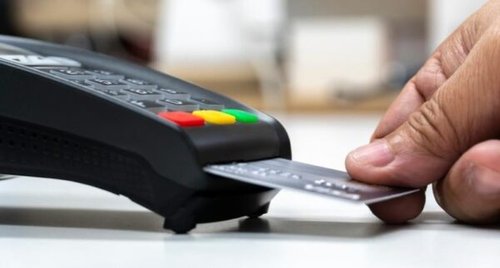If you’ve ever filed for bankruptcy, or considered doing so, you probably worried about the impact of a bankruptcy filing on your credit score.
That concern is understandable. After all, a bankruptcy stays on your credit reports for 10 long years.
But choosing bankruptcy protection doesn’t mean your overall credit rating has to suffer for a decade. In fact, if you responsibly manage your credit and debt in the wake of a bankruptcy petition, your credit score could rebound in as little as six months to a year after a bankruptcy is discharged.
Here are four things you must know about bankruptcy and your credit score.
1. Bankruptcy doesn’t automatically destroy your credit score
Most people erroneously assume that bankruptcy always decimates credit score. In reality, for many individuals, a bankruptcy filing often simply reduces an already low credit score.
“By the time you’re at the point of bankruptcy, a lot of damage to your credit rating has already been done,” says Boston bankruptcy attorney Ted Connolly, who is also the author of “The Road Out of Debt.”
Connolly notes that most people seeking bankruptcy protection have already missed payments, had accounts go into collection or been sued by creditors – all of which take a toll on that person’s credit score.
Even for those bankruptcy filers who’ve managed to avoid getting behind on their bills, their credit scores are likely still being held down – to a greater or lesser extent – by their heavy credit card usage.
“People usually live off credit cards for a year or so before they file bankruptcy,” Connolly says.
One of the ironies of the credit-scoring system is that the higher your credit score, the more damaging a bankruptcy filing is to your credit rating. For people with top FICO credit scores of 760 and above, bankruptcy can knock roughly 150 points off of their scores, FICO officials say. But for people with sub-prime scores that are already in the mid-600s, 500s or lower, bankruptcy may only decrease their scores by as little as 50 to 100 points.
➤ LEARN MORE:VantageScore vs. FICO® Score: A guide to understanding different credit scoring models
2. Chapter 7 is easier to recover from than Chapter 13
Chris Bridges, a credit expert who runs Vision Credit Services in Virginia, says the type of bankruptcy you choose will greatly determine how quickly your credit score recovers.
The key determinant, Bridges notes, is when the bankruptcy court will discharge the bankruptcy.
With a Chapter 7 filing, where consumers wipe out credit card debts and other bills, a bankruptcy can be discharged in as little as 60 to 90 days after the filing, according to Bridges. Chapter 13 bankruptcies, however, aren’t discharged until years after bankruptcy filings. That’s because Chapter 13 bankruptcies are reorganization plans where consumers take three to five years paying off some or all of their debts under court supervision.
“Once the bankruptcy is discharged, that’s when credit restoration begins,” Bridges says. “There’s really no point in trying to restore credit before a discharge.”
➤ LEARN MORE:What is the difference between Chapter 7 and Chapter 13 bankruptcy?
3. To repair credit, you have to get credit
The issue of when a bankruptcy discharge is granted poses a Catch-22 for those in Chapter 13 since “the way you repair credit after bankruptcy is by getting new credit,” says Michael Raichelson, a bankruptcy attorney in Woodland Hills, CA.
But Raichelson notes that people in Chapter 13 usually can’t get substantial amounts of new credit because federal bankruptcy law prohibits those in bankruptcy from taking out any new credit in excess of $1,000 absent permission from the court. By contrast, those who’ve gone through Chapter 7 and quickly received a discharge, can immediately start to apply for credit and begin to rebuild credit ratings.
Raichelson says that by the time people seek his services, they usually have credit scores in the 500s. “After a year, 80% of my clients see their credit scores increase,” he adds.
➤ LINK LABEL:Can you get a credit card after filing for bankruptcy?
4. Bankruptcy lets you start fresh
The good news if you’re filing Chapter 7 or Chapter 13 is that bankruptcy doesn’t have the same stigma it had decades ago. Also, many banks and lenders are more than willing to extend credit to you once your bankruptcy has been discharged.
“For starters, these people have no more debt, so they’re looked upon as less risky,” says Raichelson. The flip side, he adds, is that creditors know that if you’re coming out of bankruptcy, you can’t file for that protection again for eight years. “So if they’re issuing you a credit card or a car loan and you don’t pay, now they can sue you.”
From a lending and credit-scoring standpoint, how you manage your financial obligations following a bankruptcy is tremendously important.
Bridges, the credit expert, says that she knows people who had bankruptcies discharged, then bought brand new vehicles at less than 1% interest a year later. “Within a six-month period, I often see scores go from the low 500s to 600s or even 700s,” she says. “Some got a secured credit card or became authorized users on someone else’s account. But the key is to re-establish credit and use it wisely.”
“If you don’t, and if you mismanage your finances,” she adds, “then it’s like a double hit from a credit perspective, because it’s like you got a second chance but you blew it.”
The bottom line is that bankruptcy, while not a fun process, is not the end of the world. If you’ve regained your financial footing and are ready to rebuild credit, you may have nowhere to go but up.


